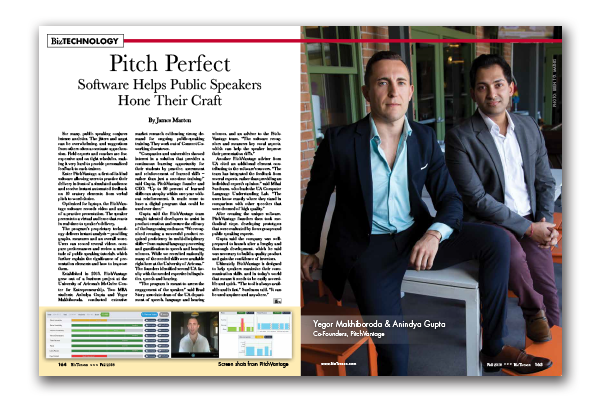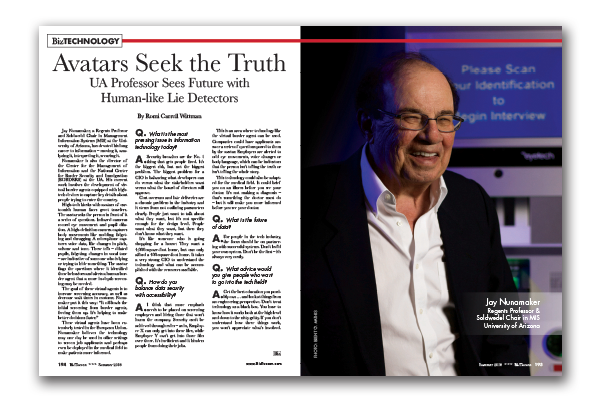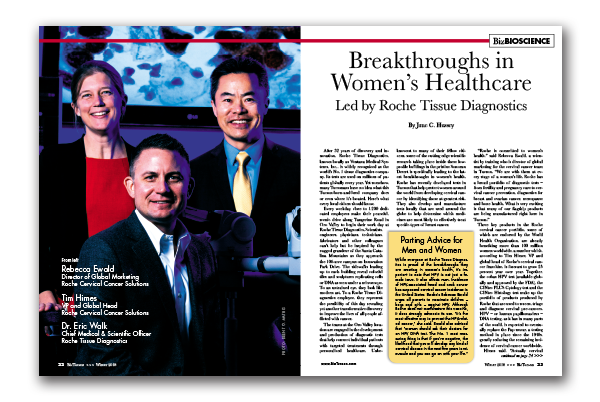
Sweitzer Brings Researchers Together – Sarver Heart Center Poised to be a Real Force
By Eric Swedlund –
Dr. Nancy K. Sweitzer is the type of physician-scientist who thrives in a collaborative, interdisciplinary environment like the University of Arizona’s Sarver Heart Center.
Though she didn’t come from a medical family, Sweitzer set her sights on becoming a doctor when she was 17 after losing her grandfather to colon cancer. In college, her adviser pointed her toward M.D.-Ph.D. programs, where she could learn the skills necessary to go into medically relevant scientific research.
“My initial experience in science was in a basic laboratory – working in cells and molecules and studying the heart muscle in that way,” Sweitzer said. “As I developed in my medical career, it became clear I didn’t want to spend my time in a lab at a bench. I wanted to work with people.”
Sweitzer took over as director of the Sarver Heart Center on March 1, recruited from the University of Wisconsin, where she was an associate professor of medicine and director of numerous programs, including clinical research, quality, and the heart failure and cardiac transplant programs.
“The University of Arizona and the Medical Center are attracting leaders who thrive on change. I find the new leadership exciting and fun to work with. We get each other and are striving for the same thing,” Sweitzer said.
“I’ve found the transition from Madison to Tucson for me very easy. The people are similar in their openness and their friendliness. I’ve found people here more collaborative and more interested in building bridges and networking. It has been an easy transition for me and it’s going to be a good place to accomplish what I want to accomplish.”
Initially considering specializing in obstetrics and gynecology, Sweitzer switched to a cardiac muscle project during her physiology training, then found her love of cardiology in medical school, working at a Veterans Affairs hospital.
Treating three veterans suffering from heart failure, Sweitzer removed 100 pounds of fluid in a week.
“I love my clinical job because when you remove fluid from patients, they get better,” she said. “Everybody talks about heart failure being the cancer of cardiology – but my therapy makes people feel enormously better and that’s very gratifying.”
After earning both her medical degree and doctorate in physiology at the University of Wisconsin in Madison in 1993, Sweitzer completed her internship and residency in internal medicine, and fellowships in cardiology, heart failure and cardiac transplantation at Harvard Medical School and at Brigham and Women’s Hospital, where she remained as an instructor in medicine from 1999 to 2001, when she returned to Wisconsin.
Sweitzer’s research includes clinical trials in heart failure – testing new therapies in the heart failure population in search of superior ways of treating patients.
“That’s an area of work I do collaboratively with multiple investigators across the country and the world, but I have had leadership roles in a number of trials and that aspect of my career is developing rapidly,” Sweitzer said.
Another of her research programs involves a system approach – studying how heart failure impacts other parts of the body. Sweitzer focuses on the interaction of the dysfunctional heart muscle in heart failure with the vasculature and kidneys to better understand how to improve symptoms and organ function in heart failure patients.
In patients with a diagnosis of heart failure with preserved ejection fraction, the heart appears to pump normally, but the body does not perceive that it’s getting a proper blood supply. The properties of the aorta will impact the efficiency and effectiveness of the heart’s ability to pump blood. But the aorta changes properties as we age.
“We’ve been working to look at how those organs are working together and how that might become dysfunctional with age, particularly in women,” she said.
The disease disproportionately affects elderly women, in their 70s and 80s. The age-related changes in the aorta may ultimately affect other organs, like the kidney and brain in heart-failure patients.
Sweitzer is also part of a large-scale, long-term longitudinal study of heart failure patients. Sweitzer and colleagues from the University of Pennsylvania and Case Western University are tracking more than 4,000 patients, looking for markers and proteins in the blood as the diseases progress. The goal is to find biomarkers that can predict the progression of the disease, both for better and for worse.
“I am looking forward to the unique opportunity to lead cardiovascular research efforts, coupled with a successful center of excellence in the UA Sarver Heart Center. The potential to make a significant impact is far greater than most cardiology opportunities,” Sweitzer said.
“The Sarver Heart Center and the talented and dedicated staff are poised to be a real force in the Tucson community as well as the regional Southwest for improvement of care disparities, cardiovascular disease awareness, treatment of advanced heart disease and large-scale preventive heart disease efforts.”





